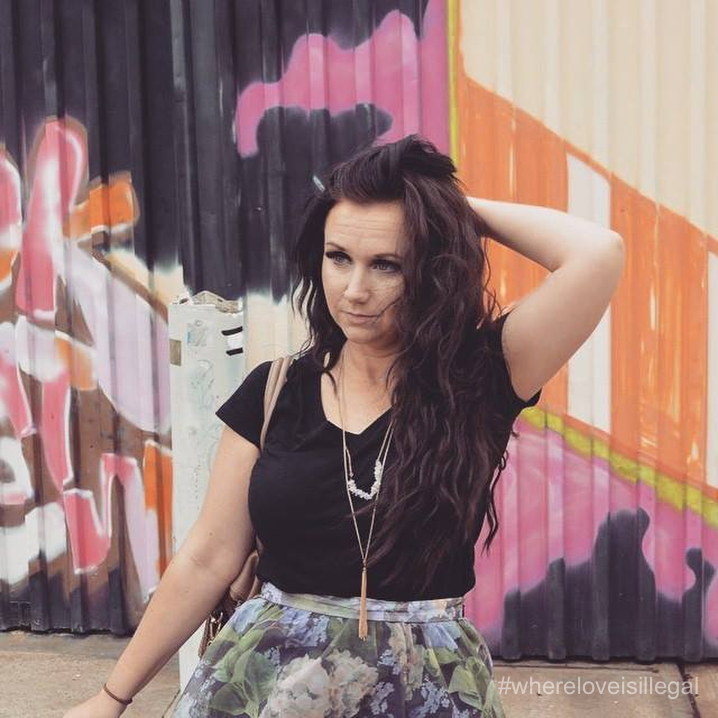Meg / United States
“I grew up in a series of small military towns. I came out at 11 years old. By the time I turned 19 I lost three friends to LGBT related hate violence. My story is the unconventional casualty of Don’t Ask Don’t Tell. In the mid 90s the military was a culture of fear for LGBT service members, but many people don’t realize the DADT culture of fear was also handed down to the LGBT family members of service people. I was the oldest daughter of a teenage mother. My family had no idea what to do with a prepubescent queer kid.
This isn’t an uncommon occurrence. 40% of homeless youth identify as LGBTQ. Those figures are pretty remarkable when you realize that LGBTQ youth only make up 3-5% of the general population. Many homeless LGBTQ young people cite family rejection as the cause of their homelessness.
I was homeless through out college. It’s an untraditional form of homelessness and very common with college students. I had room and board provided through my scholarship but it only covered the academic year. So every year in the summer and any time school was on break I had to scramble to find somewhere to live. I survived by couch surfing, taking jobs at summer camps and volunteering time in exchange for somewhere to sleep.
By the time I left home I was 18. I was just slightly too old to qualify for most youth programs, but not old enough to have the experiences or resources open to older adults. I surrounded myself with other LGBTQ young people. It was like the blind leading the blind. We had no idea how to find our own identities or keep yourselves safe in a society that rejected us. I built a community around me to serve as a makeshift family. In 2008, a transwoman who hung around in the same group I did was murdered. She was the third person to die from homophobic hate in my life. The death of my three friends served as the catalyst for turning my anger into productive action.
A professor at a local university and two presbyterian ministers took me under their wings and taught me about activism, love and acceptance. With their support, I was able to finish my degree and start my career as a professional activist. I’ve spent the last 10 years of my life working to empower, educate and reteach LGBTQ people about our community, gender and sexuality. These days I specialize in international travel for LGBT people. I hope to use my voice, experiences and privilege to uplift other LGBTQ people. You can find my work at the Matador Network and my blog DOTR.”





Good for you meg – you turned something negative into call for action – also thanks to those 3 individuals who were there to support you – you can surf on my couch anytime – from a 61 year old mother and grandmother in canada, much love